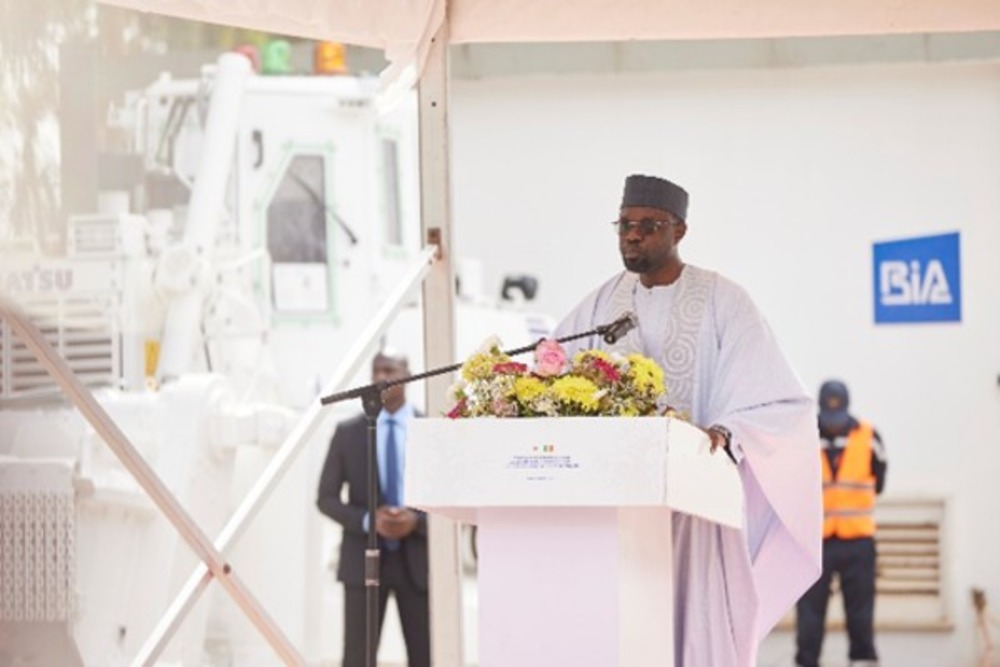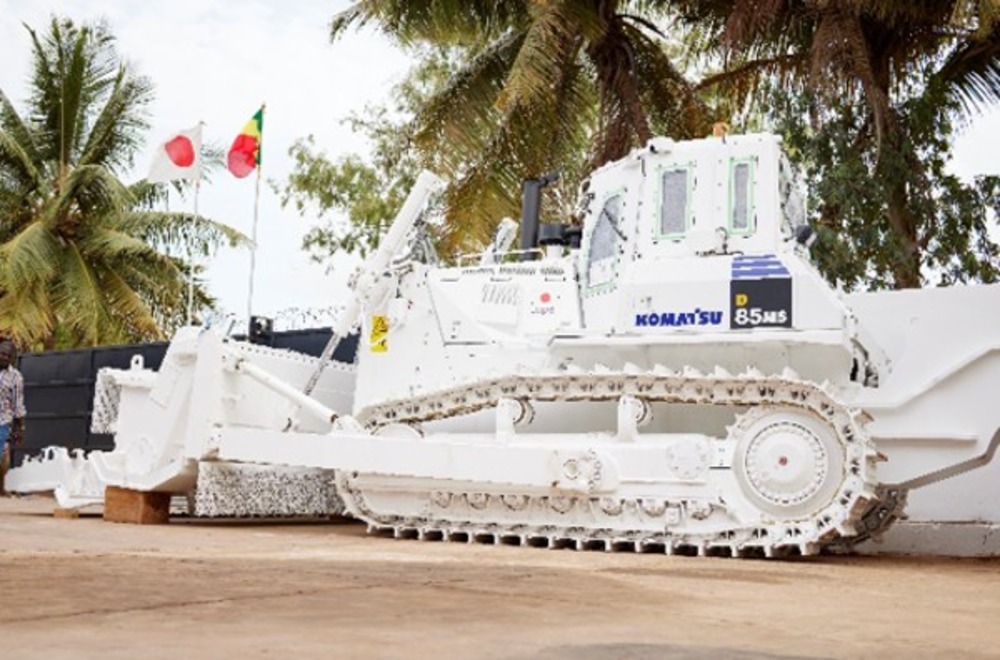Komatsu Powers Peace and Progress in Senegal
In the once-vibrant Casamance region of southern Senegal, echoes of past conflict still linger beneath the surface. Though a ceasefire was signed back in 2014, remnants of war continue to haunt the land in the form of antipersonnel mines. These hidden hazards have rendered vast stretches of terrain unsafe, stalling redevelopment and forcing entire communities into exile.
Enter Komatsu. The Japanese construction machinery giant is now stepping up its longstanding humanitarian efforts with a bold new initiative: supporting demining operations in Senegal. Having cut its teeth on similar projects in Cambodia and Laos since 2008, Komatsu is no stranger to the painstaking process of removing unexploded ordnance. What’s different this time is the location—and the urgency.
Manual demining has proven to be not only dangerous but painstakingly slow. With lives and livelihoods hanging in the balance, Komatsu’s mechanised solution offers a safer, faster alternative. Following an on-ground assessment confirming that most mines in the region are antipersonnel, Komatsu will deploy its purpose-built demining machines—developed and refined through years of fieldwork.
These machines are being donated through Japan’s Official Development Assistance (ODA) programme and will be handed over to the Senegalese Government. Working in tandem with local authorities and NGOs, Komatsu aims to accelerate the clearance of landmines, laying the groundwork—quite literally—for a future where displaced families can return home, and entire villages can rise from the ruins.
A formal handover ceremony, held on 24 July 2025, marked this major milestone. The event drew over 200 attendees, including top-tier officials from the Senegalese government such as the Prime Minister, Foreign Minister, Economy Minister, and Defence Minister. Also present were dignitaries from Japan including the Ambassador Extraordinary and Plenipotentiary, representatives from Komatsu Ltd. and Komatsu Europe, as well as BIA Dakar, Komatsu’s local distributor.

Education as Infrastructure
Komatsu’s contribution to Senegal isn’t just about machines and minefields. It’s also about minds. Earlier in July, the company inked a scholarship agreement with the Centre de Formation Professionnelle et Technique SENEGAL-JAPON (CFPT-SJ), expanding its reach into human capital development.
Founded in 1984 with the backing of the Japan International Cooperation Agency (JICA), CFPT-SJ has grown into a regional powerhouse for vocational training. Today, it caters to around 1,300 students, with an encouraging 18% being women. Recognised as one of ten Human Resource Development Centres under the Tokyo International Conference on African Development (TICAD), the school attracts learners from across the Economic Community of West African States (ECOWAS).
Under the new agreement, Komatsu will offer full scholarships to ten self-funded students enrolling in CFPT’s Heavy Equipment Maintenance Programme starting October 2025. Selection will be based on entrance exam results set for September. The support covers two years of tuition, directly addressing the chronic shortage of qualified heavy equipment technicians in the region.
This isn’t Komatsu’s first foray into education support. The company played a foundational role in shaping the curriculum for the Heavy Equipment Maintenance course when it was first launched. This latest move strengthens that commitment and reflects Komatsu’s broader strategy of nurturing skilled labour as a key to regional development.

Bridging Machinery and Humanity
Komatsu’s twin-pronged initiative—demining and education—paints a broader picture of a company invested in more than just selling equipment. It signals a holistic approach to development that recognises both the physical and social rebuilding required in post-conflict zones.
In Casamance, the immediate goal is safety, but the long-term vision stretches further: sustainable community revitalisation. And in Dakar, the capital, equipping the next generation with mechanical expertise ensures the region has the skills it needs to maintain the machinery of progress.
“Our hope is that through these efforts, we can contribute not only to the safety of the land but also to the prosperity of the people,” said a Komatsu spokesperson during the handover event.
The alignment between machine donation and skills development is no coincidence. As more demining equipment is brought into service, the need for qualified technicians to maintain and operate these systems becomes even more vital. By linking the dots between aid and education, Komatsu is building a blueprint for sustainable development—one that could well be replicated across other post-conflict regions.
A Model for Corporate Humanitarian Engagement
What stands out most in Komatsu’s Senegal strategy is the depth of coordination. By working hand-in-glove with national governments, local NGOs, international bodies like JICA, and vocational institutions, the company’s initiatives are deeply embedded within existing ecosystems. This isn’t just corporate social responsibility—it’s corporate co-development.
Moreover, the focus on high-impact, long-term contributions sets a benchmark. Demining efforts directly improve public safety and free up arable land, while vocational training addresses youth unemployment and builds resilience into the regional economy. The initiatives feed into each other, creating a loop of progress that benefits all stakeholders.
“Komatsu’s support for CFPT-SJ is a shining example of how private sector partnerships can uplift public education systems,” noted a representative from JICA. “It not only builds skills but fosters confidence in young people looking to make a difference in their communities.”

Rebuilding Futures, One Project at a Time
Senegal’s journey from conflict to recovery is a long road, but thanks to strategic partnerships like these, that path is becoming safer, more skilled, and full of potential. Komatsu’s approach—pairing humanitarian engineering with education—offers a pragmatic yet profoundly human roadmap for rebuilding.
With the mines being cleared and a new wave of skilled technicians entering the workforce, the seeds of sustainable growth are well and truly being sown. It’s a powerful reminder that in the hands of those who care, even construction equipment can become tools for peace.




























